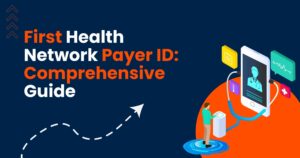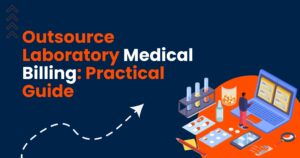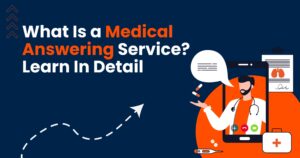Mixed hyperlipidemia is a lipid disease that presents with a high level of cholesterol and triglycerides in the blood. Medical billing, insurance claims and appropriate management of patients depend on the correctness in medical coding. Based on the ICD-10 codes, mixed hyperlipidemia ICD 10 is coded as E78.2.
The coding enables the medical staff to classify individuals with various lipid disorders, which would lead to accurate diagnosis and specific treatment interventions.
What is Mixed Hyperlipidemia?
Mixed hyperlipidemia (also, combined hyperlipidemia) is a disorder in which a patient has elevated levels of:
- Low-Density lipoprotein (LDL)- also referred to as bad cholesterol.
- Triglycerides – is a kind of fat present in the blood.
As opposed to pure hypercholesterolemia, where the levels of cholesterol alone are increased, mixed hyperlipidemia influences several lipid fractions which complicates its treatment. This difference is significant in the comparison of pure hypercholesterolemia vs mixed hyperlipidemia in clinical practice.
ICD-10 Coding for Mixed Hyperlipidemia
The ICD 10 code mixed hyperlipidemia is E78.2. The following are some of the variations that are commonly applied in medical documentation:
- ICD 10 mixed hyperlipidemia
- COMB mixed hyperlipidemia ICD 10.
- ICD-10 code of mixed hyperlipidemia.
- ICD 10 of mixed hyperlipidemia.
- Mixed hyperlipidemia E78.2
- E78.2 mixed hyperlipidemia
Correct coding will mean appropriate billing, simplification of insurance claims and help in effective tracking of patient outcomes.
Types and Classification
Mixed hyperlipidemia may be defined in accordance with lipid profile abnormalities:
1.Type IIb (Familial Combined Hyperlipidemia)
- Increased LDL and triglycerides.
- Frequently inherited risk of premature cardiovascular disease.
- Type V Hyperlipidemia
- Huge chylomicrons with high triglycerides.
- Typically, secondary to such pathologies as diabetes, obesity, and excessive alcohol consumption.
Knowledge of the type assists clinicians with making decisions on the correct type of therapy and monitoring.
Diagnosis of Mixed Hyperlipidemia
Diagnosis is a mix of clinical examination and laboratory tests:
- Lipid panel fasting assesses the total cholesterol, LDL, HDL and triglycerides.
- Family history testing assists in the detection of genetic etiologies such as familial combined hyperlipidemia.
- Further examinations: liver functional tests, glucose status, as well as thyroid Just to rule out secondary causes.
ICD 10 mixed hyperlipidemia coded properly will ensure the diagnosis is properly documented in the medical record of the patient and hence better treatment planning.
Treatment and Management
The treatment normally includes lifestyle changes and drugs:
- Lifestyle modifications – healthy diet, physical activity, body weight, alcohol consumption.
- Drugs – statins, fibrates, niacin, or omega-3 fatty acids to manage the lipids.
- Frequent check-ups – frequent lipid profile to monitor progress.
Organized care strategies are available to patients where both LDL and triglycerides are utilized in reducing the cardiovascular risk.
Why Proper Coding Matters?
The clinical documentation in the use of E78.2 mixed hyperlipidemia is crucial in:
- And proper insurance billing and claims processing.
- Research and public health study Standard reporting.
- Providing uniformity in the care of patients to various healthcare providers.
MDhelptek offers superior solutions to the accuracy of their ICD 10 for mixed hyperlipidemia, medical records management, and healthcare billing assistance services, enabling clinics to have accurate and compliant records.
Pure Hypercholesterolemia vs Mixed Hyperlipidemia
A quick comparison:
| Feature | Pure Hypercholesterolemia | Mixed Hyperlipidemia |
| Lipids affected | Cholesterol only | Cholesterol + Triglycerides |
| ICD-10 code | E78.0 | E78.2 |
| Cardiovascular risk | High | Higher due to combined lipid abnormalities |
| Treatment focus | Statins primarily | Statins + triglyceride-lowering therapy |
Understanding this difference helps healthcare providers choose tailored management strategies.
Internal Resources from MDhelptek
MDhelptek is a provider of assistance to healthcare providers covering, among others:
Medical coding and billing solutions – proper implementation of mixed hyperlipidemia ICD 10.
Practice management software – to facilitate the management of patient records.
Clinical documentation support – proper diagnosis and treatment monitoring.
To get further information, use our ICD-10 code for mixed hyperlipidemia and medical billing solutions pages.
Conclusion
Mixed hyperlipidemia is a complicated lipid disorder, which should be diagnosed and treated with close attention. Proper coding that takes into account mixed hyperlipidemia ICD 10 or mixed hyperlipidemia e78.2 will guarantee proper billing, patient care, and treatment planning. Through the tools and services offered by MDhelptek, healthcare providers will have an opportunity to streamline the process of diagnosis, coding and control to achieve better patient outcomes.





